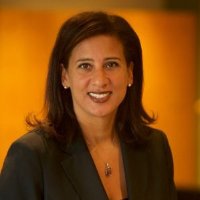Interview with Nicole Bibbins Sedaca

Dedicated to the promotion of democracy and respect for human rights, Nicole Bibbins Sedaca has worked for the past 20 years in the public, non-governmental and academic sectors to advance these issues. During her decade of service at the US Department of State, she worked extensively on democracy and human rights, focusing particularly on trafficking of persons, counterterrorism and refugee issues. While living in Ecuador, she expanded on her experience into the NGO and academic sectors, opening the International Republican Institute's local governance project and teaching at the Universidad San Francisco de Quito. She has brought her experiences back to her alma mater, Georgetown University, as a Professor in the Practice of International Affairs and Concentration Chair for Global Politics and Security in the Master of Science in Foreign Service Program.
Q: What drove you to pursue the field of International Affairs? Was there a pivotal moment in your life that carried you forward on this track?
A: Growing up in a household with a German mother and a father who served in the military, international affairs was a central part of our lives. I was always fascinated with how different cultures and people came together, and why we saw conflict and suffering in so many places in the world. Watching the Berlin Wall come down - just months after I visited East Berlin - was a pivotal moment in my thinking. Seeing the difference between people living in freedom and those deprived of this was deeply impactful.
Q: How and why did you choose Georgetown University to pursue a graduate degree?
A: After two years studying and working in Berlin (following my undergraduate studies), I knew I needed further studies to deepen my understanding of international relations. Georgetown has always been a dream of mine and was a top school in this area. Its rigorous curriculum, practitioner faculty, and location in DC made the decision very easy.
Q: How has your graduate studies shaped your career endeavors?
A: Georgetown opened my eyes to the complexities and breadth of the international landscape. It pushed me to think beyond my personal views, interests and understanding. That served me well in my career.
Q: Do you have any words of advice for students rising from underrepresented communities to pursue higher education in Int'l Affairs?
A: First, great that you are here. You have an important voice and you should raise it.
Second, whenever you are an underrepresented group in a larger system, you need to make sure that your identity is always and never an issue. (How’s that for confusing advice?) Always: Be realistic to know that you may face obstacles because of your race, gender etc., and have your eyes open to that. You need to build networks with more senior people to help you navigate that. Never: At the same time, you should not make your identity the first or only issue in engaging others. You want to be known as the best analyst, officer or aide, or whatever you are. You don’t want to be the best African American analyst or best Hispanic Officer or Asian American aide. Make people see your intellectual and professional excellence first.
Third, listen to the right voices. We always will have voices of doubt, often coming from ourselves. Listen to your mentors, professors and bosses who have supported you. Take their advice, make the improvements they suggest, and know that you should believe the confidence they have in you.

